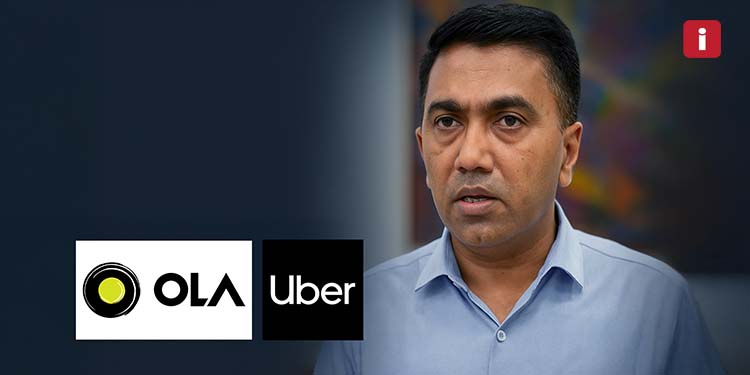In a crucial feature, which emphasizes the state’s obligation to protect local interests, Goa Chief Minister Pramod Sawant has clearly refused to enter the Kingdom of App-based tour, veteran Ola and Uber. The announcement follows the increasing protests from local taxi operators, who feared that their livelihood was at risk due to the recently introduced transport guidelines.
Ola and Uber do not come to Goa, confirm CM,
After a high-level meeting with local MLAs, Jit assured Arusks (mandram) and Michael Lobo (Calangute) CM Sawant audience and stakeholders: “Ola and Uber do not come here.”
This explanation comes in response to public concerns about the recently published Goa Transport Agricultural Guidelines, around 2025. While in guidelines that aimed to regulate aggregate services, many feared that they wanted to pave the way for large business players to disturb the local taxi system. Sawant insisted that the guidelines were designed for the regulator’s clarity and not as an invitation to national or global aggregators.
Understand new transport guidelines
Goa Transport Agriculture Guidelines, 2025, which was introduced last month, suggested a comprehensive overview for app -based transport services. Important aspects include:
- License and registration criteria.
- Price and incentive structures.
- Driver’s security measures.
- Service quality benchmark.
In order to make the state’s transport sector well organized and modern, the guidelines were completed with resistance from traditional taxi associations. Many regarded him as a step stone for the entry of Ola and Uber triggering dissatisfaction.
Local Taxi Operators Voice Strong Opposition
The taxi sector in Goa is largely composed of local, independent operators. For decades, these drivers have served as an important part of the state tourism infrastructure. The fear is that the arrival of the technically integrated agriculture will come:
- Disrupt pricing models, reduce the rent.
- Reduce the profits through high commission structures.
- Keep local drivers marginalized in favor of app -based gaming economies.
Beyond economic concerns, many Goan sees it as cultural autonomy and local confidence.
CM Sovant advocates unanimously serviced improvement
CM Sawant addressed the media, emphasizing the importance of an inclusive approach: “We will take all the confidence before we solve the problem.” He secured the need to modernize transport services, and ensured that traditional operators have not been left behind.
The Government has committed to confuse all stakeholders-including taxi associations, hotel associations and elected officials and enter into the process of taking. Any future transport model will be designed to ensure transparency, justice and local authority.
Goas Transport an important moment for the future
This development highlights Goa’s delicate balance action: Adopt technological progress by preserving local employment and identity. Instead of opening doors to global giants, the state searches for such alternatives as:
- Goon -owned aggregator platform
- Digital cooperative communities led by local drivers
- Public-private participation assigned to local economy
This decision not only protects traditional taxi jobs, but also provides the state to create an analog dynamic solution that benefits both residents and visitors.
What lies ahead of us?
Over the coming weeks, more consultation is expected as the government has corrected its strategy. It is clear now that Ola and Uber are not allowed to work in Goa, and that any digital transport model is likely to emerge from the state – not from the outside.
The prestigious white taxis of Goa will continue to dominate their streets, symbols of the coastal culture and the tourism industry which many have made them.













































